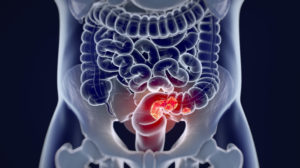Epigenetics and anxiety have a scientifically-backed relationship. Increasing numbers of studies show that stress-related disorders, like anxiety, are contributed by abnormalities in epigenetic mechanisms of gene expression.
RELATED: We Can Now Turn Back the Biological Clock: 5 Advantages of Epigenetics
In this article:
- Anxiety Disorders (ADs) Scope
- Epigenetics and Anxiety Pathogenesis
- Implications of Epigenetic Drugs in Anxiety Disorders
- Trials of Epigenetics and Anxiety Drugs
- What We Know About Epigenetics and Anxiety
Epigenetics and Anxiety: Pathogenesis, Implications, and Trials
Anxiety Disorders (ADs) Scope

Anxiety disorders are common among the global population. According to the Anxiety and Depression Association of America, ADs are the most common mental illness in the U.S., affecting 18.1% of the population every year, or 40 million adults in America age 18 and older.
Onset for ADs is different for specific disorders. The below figures show how many American adults are affected based on their percentage of the U.S. population.
- Generalized Anxiety Disorder (GAD) – 6.8 million (3.1%).
- Panic Disorder (PD) – 6 million (2.7%).
- Social Anxiety Disorder – 15 million (6.8%).
- Specific Phobias – 19 million (8.7%).
- Obsessive-Compulsive Disorder (OCD) – 2.2 million (1.0%).
- Posttraumatic Stress Disorder (PTSD) – 7.7 million (3.5%).
- Major Depressive Disorder – 16.1 million (6.7%).
- Persistent depressive disorder (PDD) (formerly called dysthymia) – 3.3 million (1.5%).
In children, 25.1% of 13-18-year-olds are affected by anxiety disorders.
Epigenetics and Anxiety Pathogenesis
The pathogenesis of ADs is thought to be contributed by biological and psychological factors.
Psychological factors include stressful and traumatic life events, particularly during childhood.
Stress is known to switch on many neuronal circuits. In previous studies, gene encoding proteins related to these neuronal circuits have been found to show irregularity in DNA methylation. [1] I.e., excessive stress due to disruption of the neuronal circuits caused by DNA methylation changes can stimulate the parts of the brain that increases anxiety.
Studies have also shown that cortisol is released in increased amounts from psychological stress. The body needs cortisol to help regulate certain functions, such as blood sugar levels and metabolism. However, excess amounts can have adverse effects, such as insulin resistance and hypertension.
While the results of genetic mapping studies are still inconclusive, deep analysis showns that biological factors contribute to ADs.
ADs have complex characteristics involving numerous genes linked with environmental factors instead of Mendelian disorders. [2] This combination leads to the development of disorders in affected individuals.
RELATED: This Cellular Respiration Compound May Ease Parkinson’s Symptoms, Study Suggests
Implications of Epigenetic Drugs in Anxiety Disorders
While drugs already exist to treat ADs, they come with a variety of issues, including:-
- Treatment-resistant ADs.
- Some patients don’t respond to medicine.
- Adverse effects like abuse, dependence, and habituation.
Therefore new epigenetic drugs could be useful for the treatment of ADs.
One such drug that has shown promising clinical results is HDACi, specifically for depressive disorders, but which relate to ADs. The family of enzymes causes DNA demethylation and is known to have cognition-enhancing effects.
Trials of Epigenetics and Anxiety Drugs

Pre-clinical trials have found that certain epigenetic drugs alleviate stress or anxiety.
Some clinical trials used valproate, known to function as an HDACi, which gave beneficial effects on patients with ADs.
Another study looked at the naturally occurring composite lactate that reduced stress in mice.
MiRNA-directed therapy is in its early stages but also looks like another option for treating patients with ADs.
What We Know About Epigenetics and Anxiety
- Epigenetic systems of gene expression are known to differ between tissues and cells and also show temporal variation.
- Epigenetic abnormalities contribute to the development of the disease.
- Increasing evidence shows that the epigenetic mechanisms in gene expression are dysregulated in almost all types of psychiatric disorders.
- Not only that, but that dysregulation contributes further to the development of the disease.
More studies need to be done to explain how epigenetic dysregulation adds to the pathogenesis of ADs. Additionally, more information is needed on how HDACi can alleviate symptoms of ADs.
If you’re interested in learning more about epigenetics, visit the TruDiagnostic website or get more involved at the TruDiagnostic forum.
Do you think that epigenetics and anxiety should be explored further? Please share your thoughts with us in the comments section below.
Up Next:
- Live Longer: The Secret Is Hidden In Your Own Body
- How To Turn Back Your Biological Clock? Know Your Epigenetic Biomarkers
- The Power of Epigenetics: Slow Aging And Feel Younger With a Simple Test
Sources:
- The Potential Role of Epigenetic Drugs in the Treatment of Anxiety Disorders
- [1] Hettema JM, Otowa T. Genetics of anxiety disorders In Sadock BJ, Sadock VA, Ruiz P, editors. Kaplan & Sadock’s Comprehensive Textbook of Psychiatry. Philadelphia, PA: Wolters Kluwer; 2017:1737–1741.
- [2] Epigenetics at the crossroads between genes, environment, and resilience in anxiety disorders. Schiele MA, Domschke K – Genes Brain Behav. 2018 Mar; 17(3):e12423.





